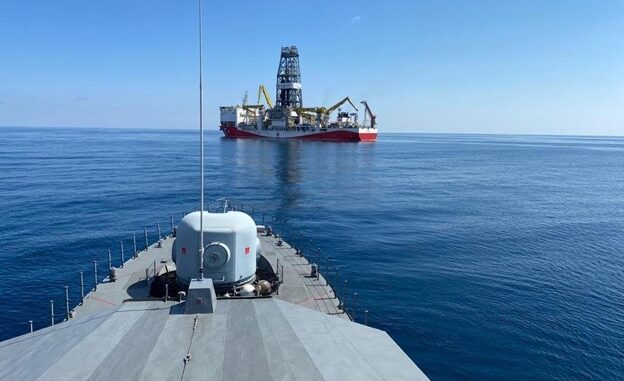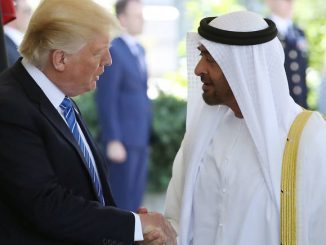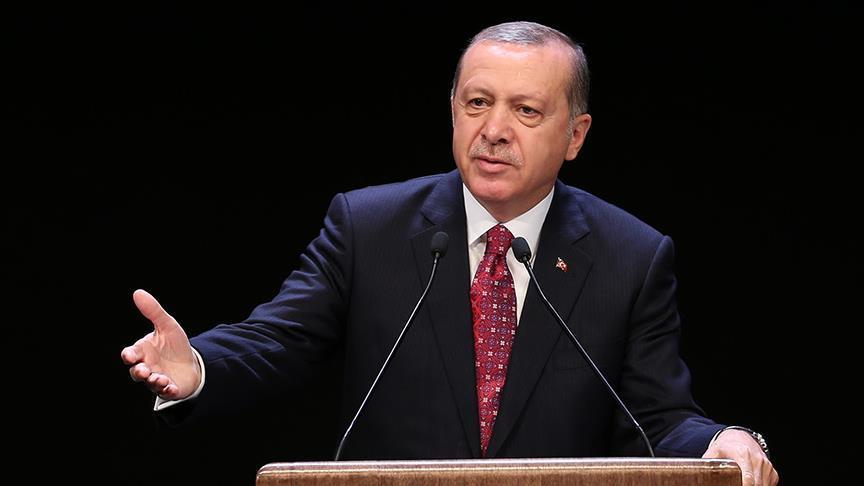
Turkish President Recep Tayyip Erdogan on Saturday announced the discovery of an additional 85 billion cubic meters of natural gas in the Black Sea, following a historic find this summer, reports Anadolu Agency.
“Total amount of natural gas reserves in the TUNA-1 well in Sakarya Gas Field reached 405 billion cubic meters,” President Recep Tayyip Erdogan said after his inspections at the drill ship Fatih.
“The reserves we discovered in the Black Sea are the largest hydrocarbon resource of our country till today,” he added.
Erdogan’s announcement came closely on the heels of the historic natural gas find in August, also in the Black Sea.
Wednesday, speaking to the ruling Justice and Development (AK) Party deputies, Erdogan said: “We will personally witness the efforts on site and announce the amount of the new reserves.”
The announcement this August of 320 billion cubic meters in Black Sea reserves by the drill ship Fatih made Turkey “very happy,” and now more good news has come, he said.
Following this summer’s find, when the Fatih discovered the TUNA-1 well in the Sakarya Gas Field, around 170 kilometers (106 miles) off Turkey’s northern coast, Turkish officials had said more reserves might be found soon.
The discovery was the biggest in Turkey’s history. Officials have said the gas from the well would be ready for public use in 2023.
Greek submarines not so ‘invisible’
On the other hand, surveillance footage released by the Turkish military on Thursday appeared to refute media reports that Greek submarines operating in the Eastern Mediterranean were “invisible” to Turkey’s armed forces, Anadolu Agency reports.
According to the footage obtained from security sources, Greek naval elements are being constantly monitored by the Turkish Armed Forces (TAF) in the region.
The sources said the TAF is monitoring the Type-214 submarines both from the air and sea as tensions escalate following the discovery of rich hydrocarbon reserves in the region and the Greek government’s maximalist maritime claims.
They added that false reports in Greece that Turkey has been unable to notice the Greek vessels were merely for propaganda purposes to consolidate public opinion at home.
In August, Turkey resumed energy exploration in the Eastern Mediterranean after Greece and Egypt signed a controversial maritime delimitation deal, spurning Turkey’s goodwill gesture in halting its search.
Declaring the Greek-Egyptian deal “null and void,” Turkey authorized the Oruc Reis seismic research vessel to continue activities in an area within Turkey’s continental shelf.
Turkey has consistently opposed Greece’s efforts to declare an exclusive economic zone based on small islands near Turkish shores, violating the interests of Turkey, the country with the longest coastline in the Eastern Mediterranean.
Ankara has also said that energy resources near the island of Cyprus must be shared fairly between the Turkish Republic of Northern Cyprus (TRNC) and the Greek Cypriot administration of southern Cyprus.



